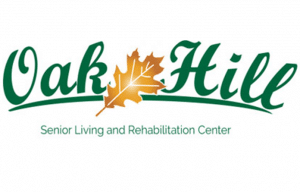Schools differ on mandate
The Columbia school district is citing the Health Care Right of Conscience Act as a means to keep personnel who do not submit to the state’s vaccine and testing mandate operating in the district.
COVID-19 Executive Order No. 88 and the Illinois State Board of Education’s subsequent related emergency rules require all school personnel to either be fully vaccinated or submit weekly negative test results to be able to work.
There was no mention of this act during Thursday’s public portion of the Columbia’s School Board meeting, which is covered in detail right here.
On Friday, Columbia Superintendent Chris Grode quoted Section 7 of the state’s Health Care Right of Conscience Act when explaining why his district will consider those who do not submit to weekly testing or get fully vaccinated as “compliant” with Gov. JB Pritzker’s mandate.
Essentially, this section states no employer or institution can deny admission, impose conditions of employment, question “discriminate against,” or take any other action based on one’s “refusal to receive, obtain, accept, perform, counsel, suggest, recommend, refer, assist or participate in any forms of health care services contrary to his or her conscience.”
Grode said the school district considers COVID vaccines and testing as “health care services.” Columbia is therefore taking the stance it cannot restrict one’s employment on the basis of not receiving the vaccine or weekly testing.
Kelton Davis, Regional Superintendent of Schools for Monroe and Randolph counties, said how each school district chooses to interpret the act is heavily influenced by its attorney, and attorneys vary from district to district.
However, each school district has some say in the matter.
“It’s the district’s attorney who is making that interpretation because they are the ones who are going to have to defend them in court, so it depends on who has what attorney and if they even asked the question,” Davis said. “Some of the school districts didn’t (give) that option to people … and that’s based on their local decision to make, (which is) based on the legal advice or the legal opinion of their attorney.”
The Columbia school district is represented by Barney Mundorf of Guin Mundorf, LLC.
Waterloo is represented by Shane Jones of Kriha Boucek. Both are education law firms.
Valmeyer’s legal counsel is the same as Columbia, and that school district is also subscribing to the same interpretation of the Health Care Right of Conscience Act, Valmeyer Superintendent Eric Frankford said.
He noted that until legislative action is taken regarding the act’s relevance to COVID-19 Executive Order No. 88, school personnel who fill out a conscientious objector form, provided by Guin Mundorf, LLC, will not be required to be vaccinated or submit weekly test results.
Aside from legal advice, Grode said Columbia’s decision to cite the Health Care Right of Conscience Act also largely stemmed from the community’s interest in keeping schools open.
“Nobody agrees 100 percent with anyone else regarding COVID vaccinations, testing, mandates (and) even the ones on the same side of the fence will have differences of opinions or interpretations … and so I’m going to make my decision on what will keep our school open in-person everyday. What do I need to operate? (That’s) what I’m doing,” Grode said.
Waterloo School Superintendent Brian Charron said his district will not be operating under this interpretation. Waterloo school personnel who do not either submit proof of full vaccination status or weekly test results will not be allowed to work and will not be paid after all of their personal days are used, Charron said.
This decision was simple, Charron said.
“It’s not an option that the state is allowing,” he said.
Charron cited ISBE’s emergency rules on the topic, which outlines two exceptions from the vaccine mandate: one relating to medical/disability considerations, the other a religious exemption.
It reads “school personnel who demonstrate they are exempt from the vaccination requirement under this subsection are, at minimum, subject to the testing requirements.”
Early last week, the lack of responses from Waterloo school district employees regarding mandate compliance appeared to threaten in-person learning. Last Wednesday afternoon, however, Charron sent an email to parents stating in-person learning at Waterloo schools would continue.
“We still have a few employees who are not going to participate, but it’s not affecting our ability to have in-person learning,” Charron said.
For the coverage of Waterloo’s controversial Monday night school board meeting, click here.
Davis said for now, the only advice he has for the school districts is to consult with legal counsel. However, he is personally wary the Health Care Right of Conscience Act will not have any sticking power when up against other potential executive orders.
“As soon as they’ve caught wind of this, my guess is that our next executive order is going to override or explicitly state that (the Health Care Right of Conscious) Act is not applicable for testing,” Davis said, referring to Pritzker, IDPH and ISBE.
Monroe County Health Department Administrator John Wagner said IDPH has told his office, as well as other local health departments, that the Health Care Right of Conscience Act is not an acceptable exemption to the testing mandate.
However, Wagner said, questions still remain as to if the mandate can legally circumvent the act.
“IDPH has set a lot of things, but if it’s not legal, then they cannot enforce it,” Wagner said.
As of press time, the schools themselves are charged with the responsibility of record keeping that shows they comply with the mandate, per ISBE’s emergency rules relating to the order.
As the rules outline, “Each school shall maintain the following documentation for each school personnel employed by the school or school district, as applicable: proof of vaccination against COVID-19 and the results of COVID-19 test.”
However, the much-discussed HB 4135, which aims to give ISBE the legal authority to revoke recognition of schools and in turn impose all of the sanctions it threatened non-compliant schools with, would change this, Davis said.
Davis explained that if ISBE obtains this power, he believes ISBE would then require regional offices of education across the state responsible for investigating supposed non-compliant schools. In order to do this, the ROE would then need to sort through each school’s vaccination and testing records, Davis said.
Davis is opposed to this, as he said it will take even more local control away from the schools and make the ROE essentially do ISBE’s “dirty work.”
“They’re trying to make us the mask police, or the vaccination police or the this police or that police, and that is not our ultimate function,” Davis said.
On Sept. 3 the bill saw its first house reading and was referred to the rules committee. As of Tuesday morning, this is the most recent happening pertaining to the bill, as reported by the Illinois General Assembly.
The Health Care Right of Conscience Act was not discussed during Thursday night’s Columbia School Board meeting. For a recap of this meeting, click here.






